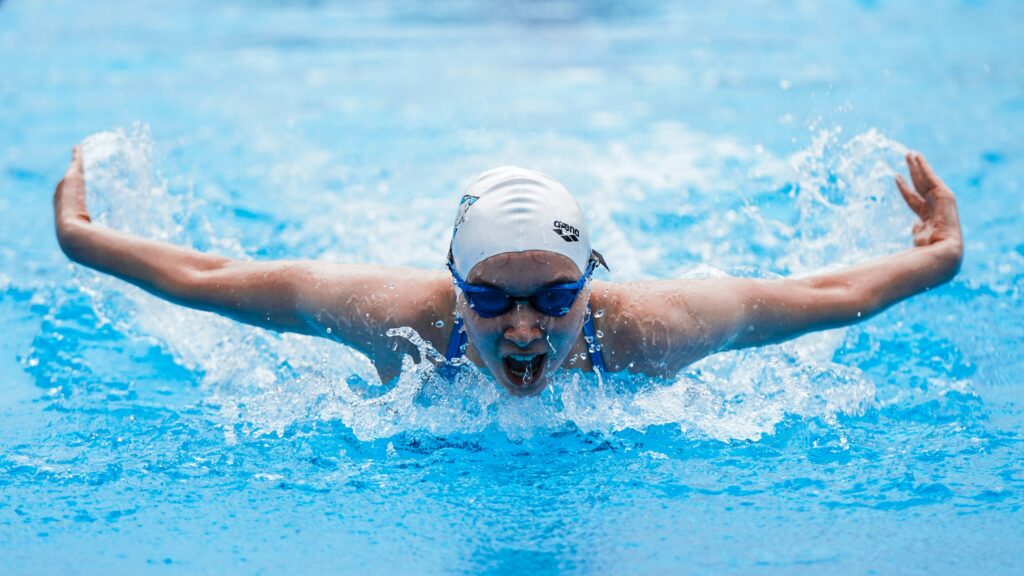World Aquatics prevents trans athletes from competing in the women’s category
Lia Thomas loses legal battle

American swimmer Lia Thomas, who became the first transgender athlete to win an NCAA I title in the 500-yard final in March 2022, has lost her lawsuit against World Aquatics (WA). Thomas decided to begin legal action in January 2024 against this international body’s decision to prohibit participation in the women’s category for anyone who has “past any part of male puberty.” Despite undergoing the transition process in 2019, Thomas has not competed since 2022.
The Court of Arbitration for Sport (CAS) dismissed Thomas’ appeal, arguing that she “simply had no right to commit to eligibility to compete in WA competitions” because she was not a member of USA Swimming. The CAS concluded that the policy and operational requirements were not determined by her current situation.
Although World Aquatics remains committed to being inclusive and fostering an environment of fairness and respect for athletes of all genders, this decision means that Lia Thomas will not be able to compete at the Paris 2024 Olympic Games.
As we already reported in a previous report from our Observatory, Thomas swept the women’s swimming championships in which she participated at the university level, causing a great division of opinions regarding her presence in this category.
An intense debate
The participation of transgender athletes in sports competitions has generated intense debate in recent years. On the one hand, there are women who fight for their right to compete in collegiate, university and professional leagues, who firmly oppose the participation of trans athletes. On the other hand, there is a movement that advocates allowing trans athletes to compete according to their chosen gender identities.
In Thomas’s case, her participation in university championships led the National Collegiate Athletic Association (NCAA) to establish a maximum limit of testosterone in the blood as a criterion for considering a person as admissible woman in women’s competitions. Although Thomas underwent treatments with testosterone suppressants, she still maintains a clear advantage over her rivals.
Sebastian Coe, Olympic champion and director of World Athletics, has stated that biological differences are undeniable and that “gender cannot trump biology.”
In 2022, after a meeting with women from Princeton University concerned about Thomas’ presence in women’s competitions, Robin Harris, director of the Ivy League athletic conference, took a stand in favor of the trans swimmer and refused to change the regulations in the middle of the competition, calling those who opposed them “transphobic.”
Our assessment
Defining plasma levels of testosterone as the only factor that should determine whether a man who now defines himself as a woman is on equal terms with the rest of the female competitors constitutes a major error. The physical, metabolic, endocrine and neurological constitution is determined by the genetically determined sex from the embryonic state. Modifying testosterone levels does not eliminate the masculine configuration in those affected, who will continue to enjoy the physical superiority that their masculinization has provided them throughout their lives.
The establishment of categories for sports competitions is aimed precisely at ensuring that athletes compete in the most balanced conditions possible, that is, under conditions of equality. Ignoring biological sex means exactly the opposite: influencing equal opportunities for those who, being different, have the same right to them.
Julio Tudela Cuenca – Cristina Castillo – Bioethics Observatory – Life Sciences Institute – Catholic University of Valencia
Related

Dance: Strength, Delicacy, and Dignity
Mar Dorrio
29 April, 2025
2 min

The Four Seasons of Your Life: Much More Than Music
P Angel Espinosa de los Monteros
28 April, 2025
3 min

A Pope Never Goes Away
José Antonio Varela
28 April, 2025
4 min

Divine Mercy, the Small and the Great
José María Montiu de Nuix
27 April, 2025
5 min
 (EN)
(EN)
 (ES)
(ES)
 (IT)
(IT)

